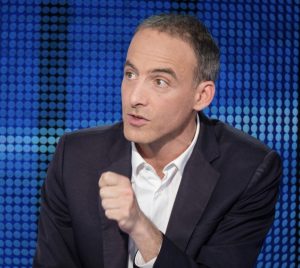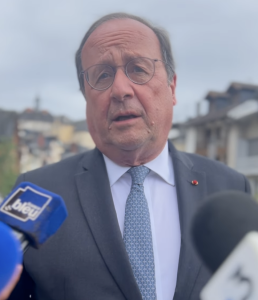It's already a fist victory for the French Left, who announced the creation of a large alliance for the 30th of June snap election. This alliance is called the "New Popular Front" and the title is not chosen randomly. It recalls the coalition between leftist and radical (center) forces in 1936, to counter the rise of the "leagues" and former First World War veterans associations, considered as "fascist" movements.

This alliance is formed by the Socialist Party, the Rebellious France, the Communists, the Ecologists and smaller leftist forces such as Public Place (Raphael Glucksmann), GenerationS (Benoit Hamon), The New Anticapitalist Party (Philippe Poutou) as well as other even smaller groups, civil associations and syndicates. When you look to the right of the French political landscape and you see the scandals and exclusions from the last days (Eric Ciotti, Marion Maréchal), this Left coalition shows a lot of political maturity. Historically, in four crucial moments of the French history the Left managed to get over its divisions and unite to accede or conserve power: in 1877, under Léon Gambetta, it got rid of the monarchy restoration claims and durably anchored the Republic; in 1936, the first Popular Front led to the Léon Blum and Camille Chauteamps governments; in 1981 it formed the Mauroy II Socialist-Communist government and in 1997 the Plural Left coalition governed France until 2002. The united Left also had a failed attempt under the Common Program led by Socialists and Communists, but their coalition didn't manage to elect François Mitterrand as President of the Republic in 1974 and eventually was dismantled in 1977. However, in all these previous five occasions, the left had powerful figures such as Léon Gambetta, Jules Ferry, Léon Blum, Maurice Thorez, François Mitterrand, Georges Marchais, Claude Estier, Lionel Jospin and Dominique Strauss-Kahn. This is not the case now. While Jean-Luc Mélenchon is acting low profile because of his divisive and radical character, only Olivier Faure, the Socialists' First Secretary, and Raphael Glucksmann, the Public Place leader, are better known to the public opinion. The absence of strong leaders is a clear disadvantage for such a large coalition.
It is commendable that divergent opinions regarding Ukraine and the Israeli-Palestinian conflict did not hamper the forming of this alliance. The Socialists and Public Place imposed their positions on these two issues to the Rebellious, as the program of the New Popular Front underscores the support for arms delivery to Ukraine and condemns the " terrorist massacres".
The alliance puts a lot of pressure on the Presidential majority, who is now relegated in a fragile third position in a first-pass-the-post election. If President Macron was hoping that the short timespan left until the snap election would not allow the left to unite its forces and to support support his candidates, he got it wrong. As it stands today, it looks like most of the second round finals on July 7 will be between the National Rally and the New Popular Front.
After he publicly praised the New Popular Front alliance on the evening of June 13, the official announcement came two days later. François Hollande is running for an MP seat in his Tulle stronghold. It is quite strange for a former President of the Republic to run for an MP seat, only Valéry Giscard d'Estaing doing that in the entire history of the Vth French Republic. Hollande justified this move by a need to get over divergences and "get to the core of things", which is now the imperious need to block the far-right's rise to power.

It is clear that François Hollande was searching for an appropriate moment to get back into politics. The timing looks great, since the left will probably get a good score and, as a former President, François Hollande will be one of the leaders of the new alliance. This news took by surprise the Headquarters of the Socialist Party, who prepared another candidate for that specific constituency. The Headquarters "took note of the local organisation's decision to invest former President Hollande". French media report that Hollande somehow inlayed himself to an evening party where wasn't invited. His run is contested by many voices, including by his former Prime Minister, Manuel Valls, who accused him to take seat at the same table with the Rebellious. Far-left movements of the New Popular Front also criticized Hollande for putting a halt to social reforms during his presidential mandate and for paving the way for Emmanuel Macron's accession to power.
François Hollande's bid sends a strong message of inclusion and willingness to gather all voices of the Left, but only time will tell if he will be an asset or a millstone for the New Popular Front. At least for the snap election, the future of this alliance looks rather rosy.